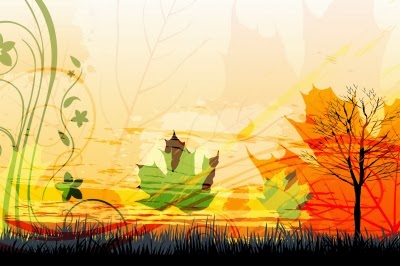Last night, my goal was to get home from work, set my laptop up in my office away from distractions and sit down to write. Despite my determination to get a significant amount of writing done, I didn’t get a single word written. I know you probably think I got distracted by the internet, but that’s not the case at all. Instead, I got brain freeze, literally. My apartment was so cold that I couldn’t focus on anything but how cold I was, my mind (and limbs) were numb. With no control over the air conditioning, I opened the windows to try to let in some warmth, but to my dismay, it was the same temperature outside as it was inside offering no relief.
I tried to push through and got so far as to setting up the laptop and changing into sweats, a long sleeved shirt and long slipper socks to try to thaw out. That still didn’t do the trick. So I then had to climb into bed and curl up under the covers. I kept glancing over to my office, longing to be able to sit in there and write, but it was just so cold. I even made an attempt to use my Nook and stylus to do some writing, but didn’t get very far.
This got me to thinking, how big of a role does our environment play in our ability to write and how much of it is just another excuse? Personally, other than situations like last night, where the conditions are to the extreme, I don’t have a “perfect” writing environment, one in which I cannot write unless everything is just so. Sure, I would love it if I could do my writing in some tropical paradise while soaking up the sun on a beach or at a desk in front of a wide open window where the warm breeze carries the sounds and scents of the beautiful blue ocean just outside. But let’s get real, the bills need to get paid, which means I need to be at work earning a paycheck so I don’t have time to be lounging on beautiful beaches. And unless I marry rich, that is not a scenario that is likely to happen anytime in my near future. In the meantime, I just need to suck it up and get my writing done anywhere I can.
Naturally, I hit the internet in search of answers. Do some people find certain environments more conducive to their writing? If so, am I missing out on something that could potentially increase my word count each time I set out to write? Or am I already doing what I can by just jotting things down anytime inspiration strikes, whether it be a five minute session or five hours? There really weren’t too many articles out there on the subject as many dealt more with software related environments rather than actual physical environments. But I did come across two blogs, with two very different opinions, each of which I can relate to for different reasons.
The first is a blog by Chris Brogan, that debunks the “myth” of the perfect writing environment. In his blog, Chris advises that writing can be done anywhere. If you are truly serious about being a writer, you won’t let things like your surroundings or the tools at your disposal become an excuse for why you can or cannot write. Much like the advice you find anywhere you look, Chris says, just write! I know that from time to time, I personally fall into that trap, “I want to write, but I would get more done on my laptop, blah, blah, blah…” There is a very real distinction between not wanting to write and not being able to write.
The other is a blog by The Writing Whisperer, M. Shannon Hernandez (no relation), that describes how you can transform your ordinary writing space/office into your ideal writing environment. She invites you to think about where you would feel most productive and visual that space, transporting yourself to that very place. That shouldn’t be too difficult for a fiction writer, right? I mean, that’s what we do. We visualize people we’ve never met and create worlds and/or experiences that we have never had (or variations of ones we have) and put these visions together to create our stories. So why not use that same power of imagination and creativity to envision ourselves in our perfect writing environment no matter where we actually are?
 |
Or maybe in a secluded cabin on the snow covered mountains?
Image courtesy of Michal Marcol FreeDigitalPhotos.net |
Do you have a specific environment that you find particularly conducive to your writing? Do you agree with Chris that a perfect writing environment is nothing more than an excuse for why we don’t write rather than why we can’t? Do you think The Writing Whisperer’s advice would help put you in the right mindset to write more? Or do you have tricks of your own that help you overcome the distractions of your writing environment?





